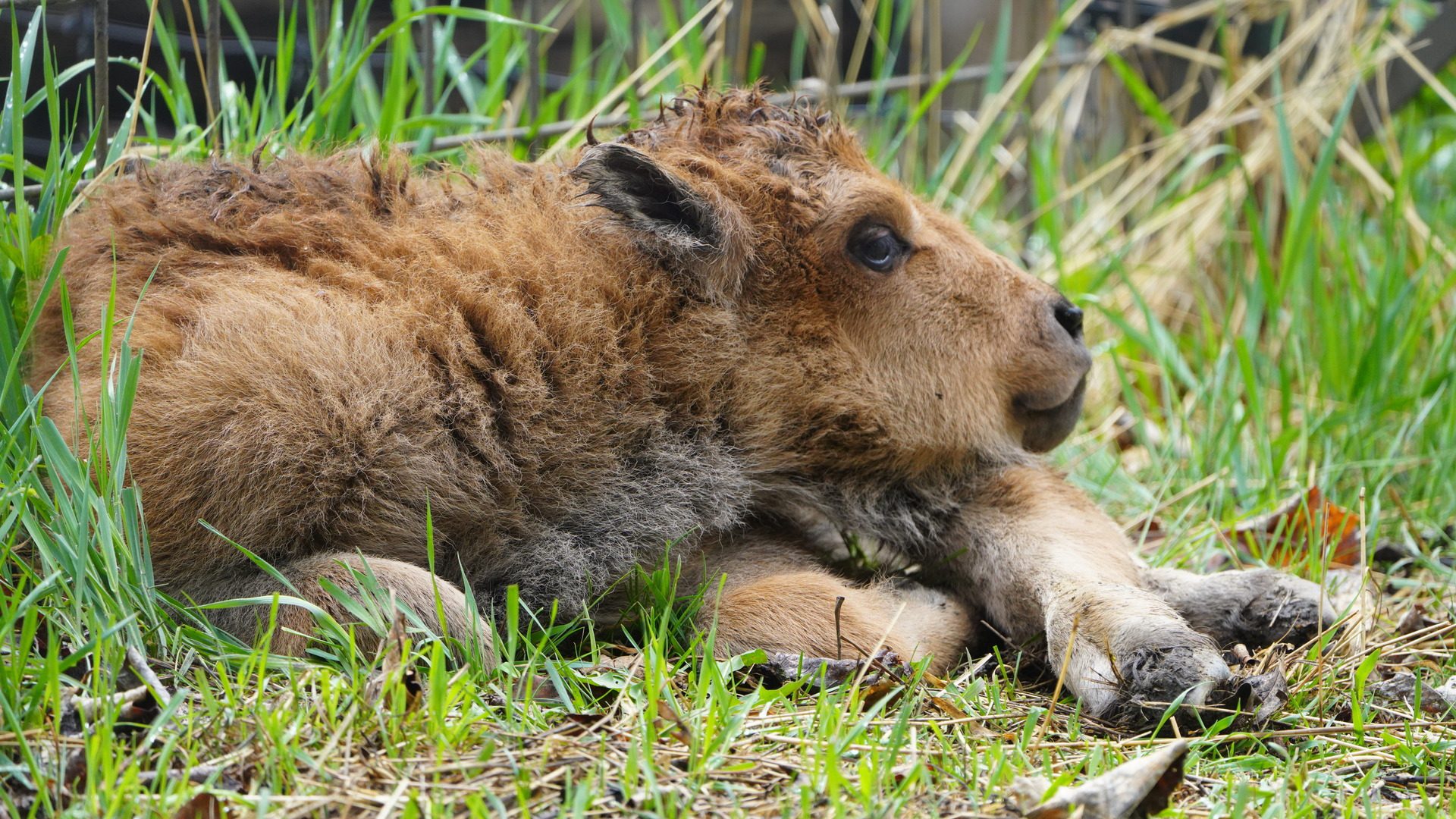As an organization committed to inclusion and the respectful celebration of Indigenous cultures, we recognize that every step we take toward reconciliation and collaboration is an opportunity to learn, grow, and build meaningful relationships.
In 2022, we took an important step forward in this journey by signing a Memorandum of Understanding (MOU) with the Siksika Nation. This MOU laid the foundation for a respectful, strong, and equitable relationship that supports reconciliation and creates opportunities for the Siksika people. It also opened the door for deeper collaboration and knowledge-sharing, especially around the land and the species that hold profound meaning for Indigenous communities.
Siksika (Blackfoot) is the language of the Siksika Nation. Siksika means Blackfoot, and the Siksika Nation is part of the Siksikaitsitapi—the Blackfoot Confederacy—which also includes the Piikani and Kainai First Nations.
The iinniiwa (bison) has protected and sustained the Siksikaitsitapi people for generations. These deep cultural roots and connections guided our collaboration this spring, when we saw an opportunity to bring our shared commitment to life in a way that honours both wildlife and human life.
With two expectant wood bison mothers, we partnered with the Siksika Board of Education (SBE) to seek guidance in naming the bison calves—a process that is far more than simply choosing a name. In Siksika culture, names are more than labels—they are gifts rooted in powerful teachings about protection and growth. A name can carry the strength of generations, shielding the one who receives it and connecting them to others. What’s more, a name can help a being grow into their purpose, guiding their development and nurturing their spirit.
Drawing upon generational teachings and the guidance of Siksika Language and Culture educators, SBE students accepted our invitation for them to suggest Blackfoot names for our soon-to-be-born bison calves. The process of coming up with the names was shaped by teachings and experiences working and learning from people in the community of Siksika and also from reading the thesis, The Sociocultural Significance of Niitsitapi Personal Names: An Ethnographic Analysis by Carol G. Lombard, University of Montana, USA.
This partnership celebrates the role of Siksika children as knowledge-holders, offering students and educators meaningful opportunities to engage in authentic conversations about Siksika language and bison knowledge. Throughout the naming process, they explored names inspired by hope, strength, and deep connections to the land.
In April, a group of SBE students and staff, representing each of their four school sites, visited the zoo to see wood bison ‘Taiga’ and ‘Keewatin’, in person as well as to speak with members of our Animal Care, Health & Welfare team. The SBE group brought their learning back to their respective classes where they worked collectively to create a list of name options that beautifully captured the spirit of these iconic animals. And true to Siksika teachings—which emphasize that the name must match the being—it was our Wild Canada team members, who know our resident bison best, who were called upon to select the final name for Taiga’s calf from this beautiful shortlist of names.
Today, we are honoured to introduce ‘Ok’takii’, our male wood bison calf born on May 12, 2025 to wood bison mom, ‘Taiga’. Pronounced OOK ducky (“ook” as in hook), Ok’takii means “Spirit or Shadow” as the bison’s spirit will watch over and protect us.
This naming journey is a powerful reminder of how reconciliation and collaboration can bring us closer together. We are grateful to the representatives of the Siksika Board of Education, its leaders and students, and our Elder in Residence, Adrian Wolfleg, for their guidance, friendship, and partnership. With the arrival of Keewatin’s calf last week, we look forward to continuing this process—guided by Siksika teachings, listening with open hearts, and honouring the knowledge shared with us.
We also look forward to seeing this collaborative project featured in the June issue of Aitsiniki magazine. Aitsiniki is the Blackfoot word that describes someone telling a story. Published by Siksika Media, a department of the Siksika Nation Tribal Administration, Aitsiniki magazine is a platform for sharing news, stories, upcoming events, programs, and services. The Siksika Board of Education submitted their story, and we are honoured to see it shared in this publication that celebrates the voices and knowledge of the Siksika community. For those interested, the magazine is available in print at various locations in Siksika or online at aitsiniki.com.
Thank you to everyone involved in helping Ok’takii and our newest bison calf begin their lives with names that carry such meaning and power. Together, we are building bridges between cultures, deepening our understanding, and honouring the sacred connection between people, wildlife, and the land we share.

